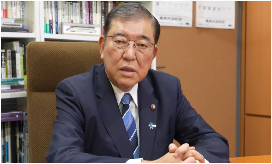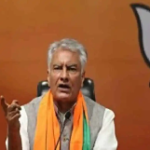Japanese Shigeru Ishiba won the party leadership on Friday in a tight contest where he laid claims to becoming the country’s next prime minister. Ishiba polled 215 votes against a hardline nationalist, Sanae Takaichi, who garnered 194 votes. The contest is significant because it marks one of Japan’s most unpredictable contests for leadership where nine candidates present themselves for the top position in history.
Election Background
The leadership contest was marked by a heavy campaign that pitted different ideologies within the LDP. A seasoned politician, former Defense Minister Ishiba drew heavy competition from Takaichi-a nationalistic view proponent. Implications of the election would be high as its outcome would define Japan’s domestic and foreign policy for the next couple of years.
Speaking off the record, the outgoing Prime Minister Fumio Kishida said, “We should ask of this new president of the LDP, Mr. Shigeru Ishiba, that he will with his executive power, decisiveness, and policy-making ability produce results.” Thus, it summarizes the expectations ahead of Ishiba in his pivotal position.
Who Is Shigeru Ishiba?
Shigeru Ishiba is one of the most long-serving politicians in the political scene. He has been in the country’s political landscape for more than 38 years. Ishiba hails from the rural Tottori area and had previously trained as a banker before he ventured into politics in 1986, when at 29 years old, he first got elected to the parliamentary seat with LDP. Since then, he has continued to hold several crucial posts: including secretary-general of LDP and Minister for Agriculture.
Ishiba has been a vocal figure for years in Japanese politics and has attempted the prime ministership five times without success. He did try running against Shinzo Abe in 2012, who many regard as having served as prime minister longer than any other person in Japan’s history. Ishiba lost to him, but that has finally proven beneficial for Ishiba as he has finally made it to the top.
Political Ideology And Vision
Perhaps this is one of the reasons why, during his active political career, Ishiba devoted a lot of energy to problematic issues, such as national security, and to reinvigorating rural communities in Japan. He’s a do-gooder in progressive causes like separate surnames for married couples caused in opposition by the more conservative sections of the LDP.
He has been vocal in improving Japan’s security posture and advocated for having an Asian equivalent of the NATO alliance to combat China and North Korea. He was responsible, only discussing China, and then balancing national interests with diplomatic relations.



